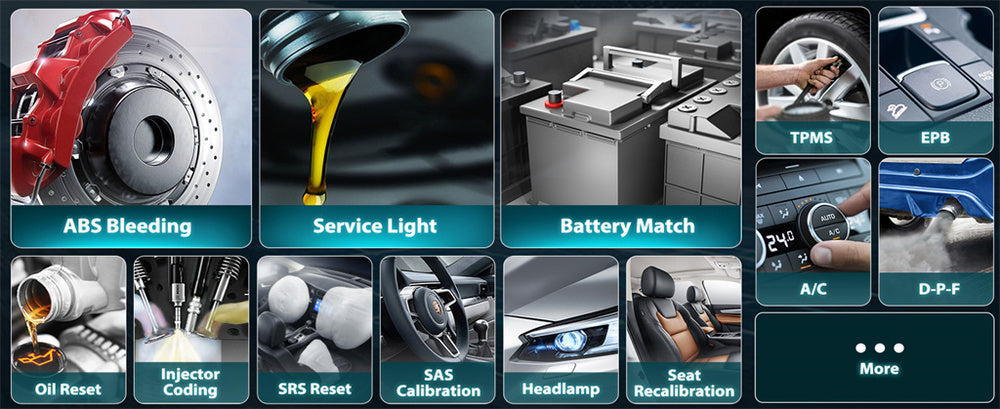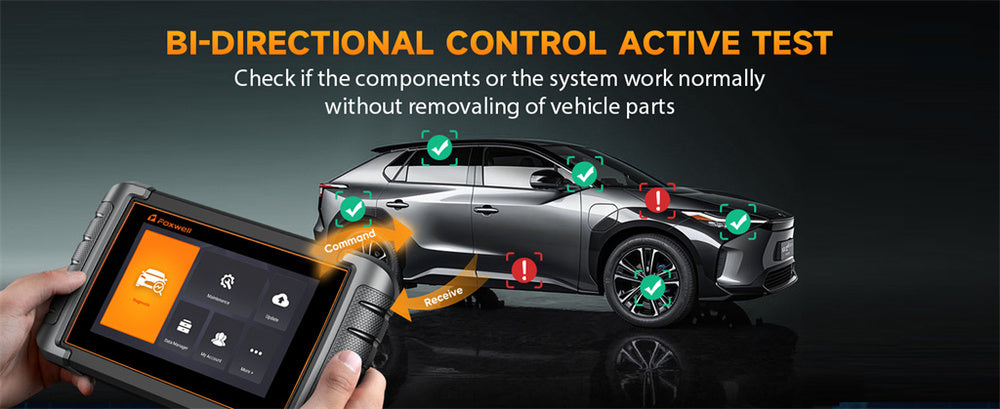Choosing the right auto car diagnostic scanner can feel a bit overwhelming, especially with so many options out there.
Whether you're a DIY enthusiast, a professional mechanic, or just someone who wants to keep their vehicle in top shape, finding a tool that suits your needs is crucial.
We'll walk you through the key factors to consider, helping you balance price and functionality to make the best choice for your situation.
Types of Car Diagnostic Tools
First off, let’s get familiar with the different types of diagnostic tools available. The most common is the OBD-II scanner, which plugs directly into your vehicle’s OBD-II port and reads error codes from your car’s computer.
These tools range from basic models, which just display the code, to advanced versions that provide detailed diagnostics and even suggest possible fixes.
Handheld diagnostic tools are another option, offering more in-depth analysis and a wider range of tests.
These are often favored by professionals but can be a great investment if you’re serious about car maintenance.
Mobile app-based tools are the newest option, combining a small hardware device with an app on your smartphone.
These are incredibly user-friendly and perfect for those who prefer tech-driven solutions.
And then, manufacturer-specific tools offer highly detailed diagnostics tailored to specific car brands, making them ideal for brand loyalists or those with unique vehicles.
Key Factors for Choosing a Diagnostic Tool

When it comes to selecting the right tool, there are a few key factors you should keep in mind.
Compatibility: Will It Work with Your Vehicle?
First and foremost, the tool must be compatible with your car.
There’s nothing more frustrating than buying a tool only to find out it doesn’t work with your vehicle.
Always check the tool’s specifications to ensure it supports your car’s make, model, and year.
Essential Features: What Does the Tool Offer?
Next, think about what you need the tool to do.
Are you just looking to read and clear basic error codes, or do you require more advanced capabilities like live data monitoring, system tests, or ABS and SRS diagnostics?
Your choice should reflect your actual needs, ensuring you get a tool that’s neither too simple nor unnecessarily complex.
Ease of Use: Can You Navigate It?
Ease of use is another critical factor. A tool that’s difficult to navigate will only add frustration to the process.
Look for a user-friendly interface, clear instructions, and straightforward operation, especially if you’re not a seasoned mechanic.
Software Updates: Will It Stay Current?
Finally, consider whether the tool offers regular software updates.
This ensures that it remains compatible with newer vehicles and diagnostic standards, keeping your tool useful for years to come.
Top Brands and Feature Considerations
When it comes to selecting a car diagnostic tool, knowing which brands to trust can make all the difference.
One brand that has been gaining a solid reputation in the industry is Foxwell.
Foxwell diagnostic car scanner are known for their balance of advanced features and user-friendly design, making them a popular choice among both DIY enthusiasts and professional mechanics.
Imagine having a tool that's not only powerful but also intuitive enough that you don’t need to be a tech guru to figure it out.
Foxwell’s products offer a wide range of diagnostic capabilities, from reading and clearing error codes to performing more complex tasks like ABS bleeding and battery registration. It’s like having a versatile assistant that’s ready to tackle almost any issue your vehicle might throw at you.
In addition to its functionality, Foxwell is also praised for the durability of its tools.
These devices are built to withstand the demands of regular use in a garage setting, which means they’re tough enough to handle the occasional drop or bump.
Plus, Foxwell tools often come with free lifetime updates, ensuring that your device stays current with the latest vehicle models and software enhancements.
This commitment to keeping your tool up-to-date is akin to having a smartphone that never goes out of style—always ready to meet new challenges as technology evolves.
Foxwell strikes a good balance between being feature-rich and accessible, making it a brand that’s worth considering whether you’re just starting out in car diagnostics or looking to upgrade to something more sophisticated.
Their tools provide the depth and accuracy that professionals need while still being approachable for everyday users.
It’s this blend of reliability, advanced features, and user-focused design that makes Foxwell a strong contender in the diagnostic tool market.

Balancing Price and Functionality
Now, let’s talk about how to balance price and functionality. The key is to align your needs with your budget.
Assess Your Needs: What Do You Really Require?
Start by determining what features are essential for you. If you’re just performing basic diagnostics, a lower-cost tool will suffice.
However, if you need more detailed analysis or plan to use the tool frequently, it might be worth investing in a more advanced model.
Budget Realistically: What Can You Afford?
Set a budget that reflects your needs. There’s no need to overspend on features you won’t use, but don’t go too cheap either—this could leave you with a tool that doesn’t meet your requirements.
Mid-range tools often offer the best value, providing a good balance of price and functionality.
Finding the Right Tool: Match Price with Functionality
Look for a tool that strikes the right balance between cost and capability.
Think of it like choosing a reliable, mid-range smartphone: it might not have all the bells and whistles, but it gets the job done efficiently without draining your wallet.
Conclusion
Choosing the right car diagnostic tool doesn’t have to be a daunting task.
By understanding the different types of tools available, considering key factors like compatibility, essential features, ease of use, and software updates, and finding the right balance between price and functionality, you can select a tool that perfectly fits your needs.
Whether you’re a seasoned mechanic or just someone who likes to stay on top of car maintenance, the right diagnostic tool is an invaluable asset in keeping your vehicle running smoothly.
FAQs
Are cheap car code readers any good?
Cheap car code readers can be useful for basic tasks like reading and clearing error codes. However, they often lack advanced features such as live data monitoring or system-specific diagnostics. If you only need to check for simple issues, a budget model might be sufficient. For more detailed analysis, you may want to invest in a more advanced tool.
What scan tools do mechanics use?
Mechanics typically use professional-grade scan tools that offer comprehensive diagnostics, including live data, system tests, and the ability to perform specialized functions like ABS bleeding or ECU programming. Brands like Autel, Snap-On, and Foxwell are popular among professionals for their reliability and feature-rich offerings.
What OBD2 scanner tells you everything that's wrong with your car?
No single OBD2 scanner can tell you absolutely everything that's wrong with your car, but high-end scanners from brands like Foxwell or Autel come close. These tools offer extensive diagnostics, covering multiple systems, live data streams, and detailed error codes, providing a thorough analysis of your vehicle's health.




Leave a comment
This site is protected by hCaptcha and the hCaptcha Privacy Policy and Terms of Service apply.